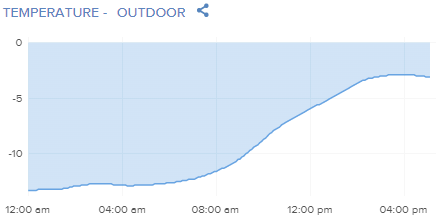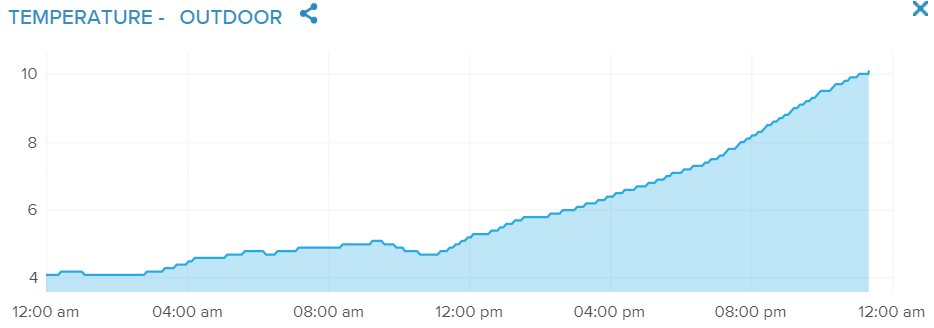A few large US cities have seen housing prices rise much faster than inflation, particularly in higher-density areas. Eric Levitz explores some possible causes:
The United States is very good at sabotaging itself through policy errors. But few of our nation’s governing failures are as simultaneously needless and detrimental as our inability to build housing.
There are between 1.5 million and 6 million fewer homes in the U.S. than there are households ready to occupy them. The proximate cause of this mismatch isn’t hard to discern: Over the past ten years, the number of housing units per 1,000 people in the U.S. has actually fallen.
By itself, a rising ratio of people to units would be sufficient to put pressure on housing supply. But since the pandemic, the number of discrete households in the U.S. has also spiked. This phenomenon has multiple causes. One is that much of the millennial generation is aging out of its roommate-tolerating years en masse and starting separate households.
Another is that the rise of remote work has led many Americans to seek more personal floor space, whether by ditching roommates or upgrading from, say, one-bedroom dwellings to two-bedroom ones so as to make room for a home office.
[But] what is it about living in an English-speaking country that turns people against high-rises?
Speaking English probably didn't cause the housing crisis, but the correlation is hard to miss.
I'm arguing with the Blazorise framework right now because their documentation on how to make a layout work doesn't actually work. Because this requires repeated build/test cycles, I have almost no time to read all of this:
Finally, a group of Chicago aldermen have proposed that the city clear sidewalks of snow and ice when property owners don't. Apparently the $500 fines, which don't happen often, don't work often either.
At my day job, we just ended our 80th sprint on the project, with a lot of small but useful features that will make our side of the app easier to maintain. I like productive days like this. I even voted! And now I will rest on my laurels for a bit and read these stories:
Finally, the European Space Agency wants to establish a standard time zone for the moon. Since one day on the moon is 29.4 days here, I don't quite know what that will look like.
I've got an open research problem that's a bit hard to define, so I'm exploring a few different avenues of it. I hope reading these count:
Since none of these has anything at all to do with my research project, I should get back to work.
I finished a couple of big stories for my day job today that let us throw away a whole bunch of code from early 2020. I also spent 40 minutes writing a bug report for the third time because not everyone diligently reads attachments. (That sentence went through several drafts, just so you know.)
While waiting for several builds to complete today, I happened upon these stories:
Finally, a school district food service director ordered more than 11,000 cases of chicken wings worth $1.5m over the last three years, which the State's Attorney says never got to the kids.
And now, since the temperature has risen from this morning's -17°C all the way up to...uh...-11.4°C, I will now walk the adorable creature who keeps nosing me in the arm as I type this.
It got practically tropical this afternoon, at least compared with yesterday:

Cassie and I took advantage of the no-longer-deadly temperatures right at the top point of that curve to take a 40-minute, 4.3 km walk. Tomorrow should stay as warm, at least until the next cold front comes in and pushes temperatures down to -18°C for a few hours Thursday night.
I'm heading off to pub quiz in a few minutes, so I'll read these stories tomorrow morning:
OK, off to empty the dog, refill the dog, and scoot over to Sketchbook Skokie for a shellacking. (Our sports person can't make it tonight.)
Time is funny. On this day, 90 years ago, radio station WXYZ in Detroit began a serial called "The Lone Ranger," written by Fran Striker, who had probably never seen Texas or a Native American person in his life.
When I read that this morning, it struck me that the radio audience in Detroit had living memory of the closest historical analogue to the entirely-fictional Lone Ranger character. Deputy US Marshall Bass Reeves served from 1875 to 1907, retiring just 26 years before the radio show started. So to the radio audience, the period depicted in the show was only as far back as 1997 is to us. The Lone Ranger show, in other words, was as historical to the audience as Life On Mars was to its viewers in 2007, or NYPD Blue is to us today.
I remember growing up in the 1970s and thinking that the 1960s were this weird, long-forgotten time before my world existed. Kind of like my friends' kids think the 2000s were the same.
One other thing. In one of life's weird coincidences, 30 January 1933 also saw the appointment of a new German Chancellor who nearly destroyed Europe. The guy appointing him to the spot thought the grown-ups in the room could contain him. Glad we learned from that mistake.
Two writers in the Times looked at two different aspects of the Conservative party's ongoing vandalism to the United Kingdom. First, David Wallace-Wells tracks the post-Brexit economic declines:
By the end of next year, the average British family will be less well off than the average Slovenian one, according to a recent analysis by John Burn-Murdoch at The Financial Times; by the end of this decade, the average British family will have a lower standard of living than the average Polish one.
On the campaign trail and in office, promising a new prosperity, Boris Johnson used to talk incessantly about “leveling up.” But the last dozen years of uninterrupted Tory rule have produced, in economic terms, something much more like a national flatlining. In a 2020 academic analysis by Nicholas Crafts and Terence C. Mills, recently publicized by the economic historian Adam Tooze, the two economists asked whether the ongoing slowdown in British productivity was unprecedented. Their answer: not quite, but that it was certainly the worst in the last 250 years, since the very beginning of the Industrial Revolution. Which is to say: To find a fitting analogue to the British economic experience of the last decade, you have to reach back to a time before the arrival of any significant growth at all, to a period governed much more by Malthusianism, subsistence-level poverty and a nearly flat economic future.
As Burn-Murdoch demonstrates in another in his series of data-rich analyses of the British plight, the country’s obvious struggles have a very obvious central cause: austerity. In the aftermath of the 2008 global financial crisis, and in the name of rebalancing budgets, the Tory-led government set about cutting annual public spending, as a proportion of G.D.P., to 39 percent from 46 percent. The cuts were far larger and more consistent than nearly all of Britain’s peer countries managed to enact; spending on new physical and digital health infrastructure, for instance, fell by half over the decade. In the United States, political reversals and partisan hypocrisy put a check on deep austerity; in Britain, the party making the cuts has stayed steadily in power for 12 years.
Over two centuries, a tiny island nation made itself an empire and a capitalist fable, essentially inventing economic growth and then, powered by it, swallowing half the world. Over just two decades now, it has remade itself as a cautionary tale.
The Tories' lazy malfeasance in promoting and then implementing Brexit may also unwind 25 years of community-building on Eire in ways literally everyone predicted, says writer Christopher Caldwell:
Ireland remains part of the European Union but Northern Ireland no longer is — and yet the two parts of the island are bound by trade and a 25-year-old peace treaty that helped defuse a terrorist conflict between Protestant unionists and Catholics.
Those loose ends were tied up in a little-understood clarification of Brexit called the Northern Ireland protocol, ratified in January 2020. It looked like a mere codicil three years ago; now it looks like a serious diplomatic blunder that could threaten Britain’s territory and the region’s peace.
[Former Prime Minister Theresa] May promised — too hastily, in retrospect — to honor the 1998 Good Friday peace agreement among Britain, Northern Ireland’s political parties and the Republic of Ireland. One of the main things the agreement did was to bind together the economies of Ireland’s north and south. But adapting that arrangement to a post-Brexit world came at a steep constitutional price for the north. To protect the European single market against smuggling and the transfer of unauthorized goods through Northern Ireland, a customs border would be established between Northern Ireland and Britain. To administer the single market, the European Court of Justice was given authority to interpret E.U. law in Northern Ireland.
Caldwell seems to favor UK independence from the EU, but he makes a good point. Something has to give. And it looks like even odds whether Brexit winds up unifying Eire into one Republic of Ireland, or reigniting the Troubles. Can't wait to find out...
New Zealand's prime minister, Jacinda Arden, just resigned unexpectedly, which is a much more surprising story than any of these I queued up:
Finally, I'm glad to discover that ibuprofen may be more effective than acetaminophen for treating tension headaches, so I will now take one.
I just got an alert that the outside temperature at my house went above 10°C:

It's mid-January, and my house in Chicago is only 2°C cooler than San Francisco. (O'Hare is only 1°C cooler.)
Maybe I have the wrong attitude. Chicago will likely have its 2nd or 3rd warmest January in history, followed by a warm and lovely spring, with flowers and sunshine for all. So I should just enjoy it. Cassie sure is.
I keep saying that the decently-governed city whose winters have gotten remarkably better in my lifetime next to the largest source of fresh water in the country will, as I've predicted for years, become a pretty good place to live in a 2°C-warmer environment. After all, a 10°C HVAC delta between inside and outside in July is less costly than a 40°C delta in February. (Seriously, if you like the idea of having unlimited fresh water to drink and only a few days a year with weather that can kill you, move to Chicago.)
And yet, I'm solidly Generation X. We learned from a young age that when things seem way better than we expected, they'll average out with a vengeance soon enough.
Sure, Chicago has a better chance of success than any other city its size over the next 100 years. But tens of millions will die worldwide and hundreds of millions will have to move after the first pulse. Then we'll have another pulse. Then a third. When my nephews' grandchildren explore the world, they'll volunteer on farms in Greenland and surf beaches outside Raleigh, and they might be the last people who taste real maple syrup.
If I found a djinn, my first wish might be that people worldwide understand that, if we continue to deny how much we're affecting the world, we'll only have a few places (like Chicago) that people will want to live in. If only that were enough.